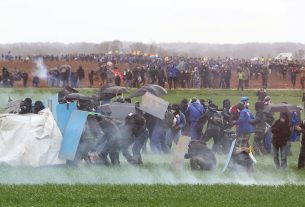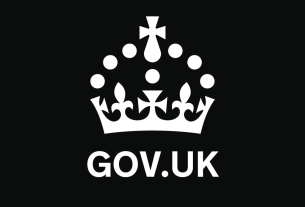In June 2007, a boat carrying 28 migrants went ashore on a beach on the southernmost tip of the Italian island of Sicily.
Among the personal belongings of the people who made the dangerous crossing from Africa, rescue volunteers found a Bible and a Koran – both underlined and encrusted in sea salt.
Mediterranean magnet
The religious texts became part of a project that received EU funding to archive and present the daily attempts to reach Europe by undocumented migrant men, women and children through various routes across the Mediterranean Sea.
‘Diaries, correspondence, objects found after landings or shipwrecks are not only significant personal documents,’ said Professor Matteo Al Kalak, a historian at the University of Modena and Reggio Emilia in Italy. ‘They also represent sources for the history of today’s migration around the Mediterranean.’
Al Kalak co-leads the EU-funded project. Called ITHACA, it runs until 2025 and is also led by Dr Maria Chiara Rioli, another historian at the University of Modena and Reggio Emilia.
The goal is to help policymakers manage regular and irregular migration by drawing from historical examples of refugee flows to or in Europe.
The EU has spent the past decade seeking to bolster management of refugee arrivals. Their numbers surged to more than 1 million in 2015 – mainly through Greece – amid the Syrian civil war and unrest elsewhere in the Middle East and in Africa, sending political shockwaves across Europe.
While they have fallen in the meantime, irregular border crossings into the EU in 2023 were the highest since 2016 at around 380 000 – driven by arrivals via the Mediterranean region. The issue remains politically sensitive.
Earlier in 2024, EU governments and the European Parliament wrapped up years of debate by sealing an agreement on managing irregular arrivals through a new common asylum system.
‘When we look at migration flows in Europe and policy responses, we seem constantly in a state of emergency, with very little historical perspective to help guide us,’ Al Kalak said. ‘The starting point for ITHACA is how history can help us move away from this.’
Past to present
The Koran and Bible found on the migrant boat on Sicily will form part of this work. ITHACA’s digital archive will collect items and testimonies of migrants to Europe.
Al Kalak and Rioli have brought together 11 partners mainly from around the Mediterranean to create the digital archive, charting different forms and routes of migration in the region.
The planned archive will be accessible to researchers, practitioners and policymakers, enabling them to access information about historical migrations from the Middle Ages to the present.
In total, 18 countries in Europe, Africa, the Middle East and Eurasia are involved in the project. Among them are Tunisia and Morocco, two main North African departure points for refugees heading to the EU.
“
We must try to learn from history.
An early historical example that will form part of the archive is the arrival of Jewish merchants in the Italian port city of Livorno from 1492 following their expulsion from Spain and Portugal.
In Livorno, Jews found a safe space to settle and conduct business in finance and the trade of luxury goods, including diamonds. Within two centuries, the Jewish population in the city grew to 4 000 – a tenth of the city’s population.
For Rioli, the case represents how people migrating across the Mediterranean have been welcomed and have integrated into a new city.
A contemporary example to be added to the archive concerns the Italian island of Lampedusa.
In recent years, Lampedusa has been a regular arrival spot for refugees travelling by boat from northern Africa and has featured prominently in the media.
Nonetheless, the context for migratory flows to the island – located east of Tunisia and north of Libya – is little understood, according to Rioli.
‘The focus is too often on phases of migration and the refugee crisis,’ she said. ‘But the from-one-crisis-to-another approach avoids a more complex and nuanced portrait documenting what happened before and between these moments.’
Al Kalak said past examples in Europe can inspire future EU strategy.
‘We must try to learn from history before determining a policy and deciding an approach,’ he said. ‘We can exploit these historical perspectives.’
Direct dialogue
Another European researcher – Michel Debruyne in Belgium – is taking a different approach to achieve the same result that Al Kalak and Rioli are seeking.
Debruyne leads an EU-funded project whose stated goal is ‘to reopen a fair dialogue on migration’. Called OPPORTUNITIES, the project runs for four years through early 2025.
Debruyne is a senior advisor at a Belgian non-profit organisation called Beweging, which supports integration of refugees by fostering communication between them and community groups.
Since the 2105 refugee crisis in Europe, he has sought to bring migrants’ voices into the discussion.
‘The conversation about migration has become really one-sided, reducing people and their stories to mere numbers, not individuals, and nothing about why they migrate or what they contribute,’ Debruyne said.
Beyond the headline
OPPORTUNITIES has established forums known as “cross talks”.
These seek to get beyond the newspaper headlines by putting migrants in touch with local community members, including ordinary residents, political leaders and journalists.
“
My hope for the project and with the play is to recreate a more open society.
Each session typically involves around 15 people and begins with the retelling of a specific migrant story collected by partners of the project.
Debruyne describes the exercise as a form of theatre that can help participants step into others’ shoes and think more deeply about integration in a less heated way.
In the spotlight
One story was provided by a Senegalese man living in Brussels and touched on the multilingual character of Belgium, which has welcomed and integrated many migrants in recent years.
Nonetheless, Debruyne recounted how, in an attempt to find work in the non-French speaking part of the country, the 27-year-old asked the Belgian state for access to Flemish language lessons, but was refused.
‘It says something about integration,’ Debruyne said. ‘People often want to work and integrate, but come up against a bureaucracy.’
Other stories retold as part of cross talks have focused on more contentious migration matters, such as access to housing. For Debruyne, these sometimes highlight wider challenges in society.
‘In our country, we need to invest more in housing,’ he said. ‘These issues being raised are often not about migration, they are about social investment.’
In total, more than 200 stories have been collected by OPPORTUNITIES partners in Austria, France, Italy, Portugal and Romania, as well as in three African countries: Mauritania, Ghana and Senegal.
In autumn 2024, Belgian theatre company KVS will perform a play based on the stories collected and on cross talk discussions. A KVS staging in Belgium will be followed by European and African tours.
‘My hope for the project and with the play is to recreate a more open society where we welcome one another,’ Debruyne said.
Research in this article was funded by the EU’s Horizon Programme. The views of the interviewees don’t necessarily reflect those of the European Commission. If you liked this article, please consider sharing it on social media.



